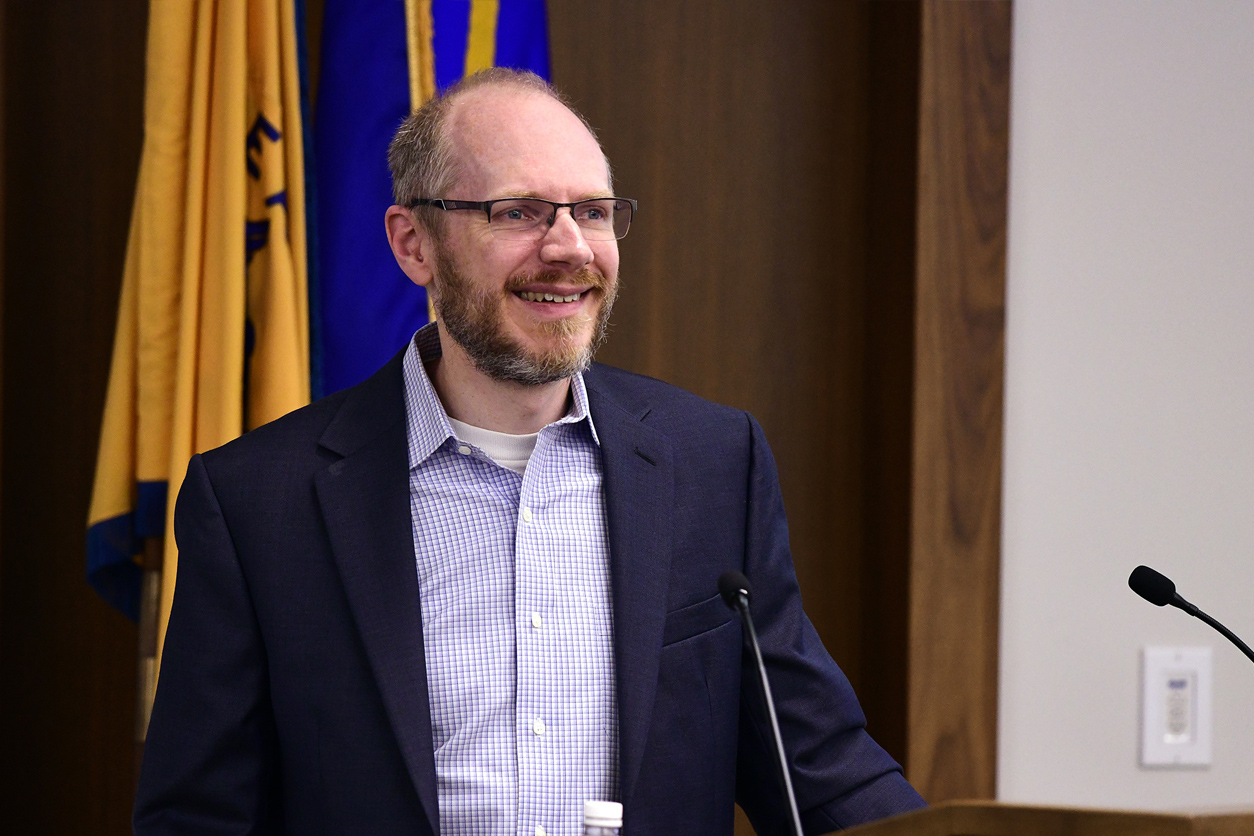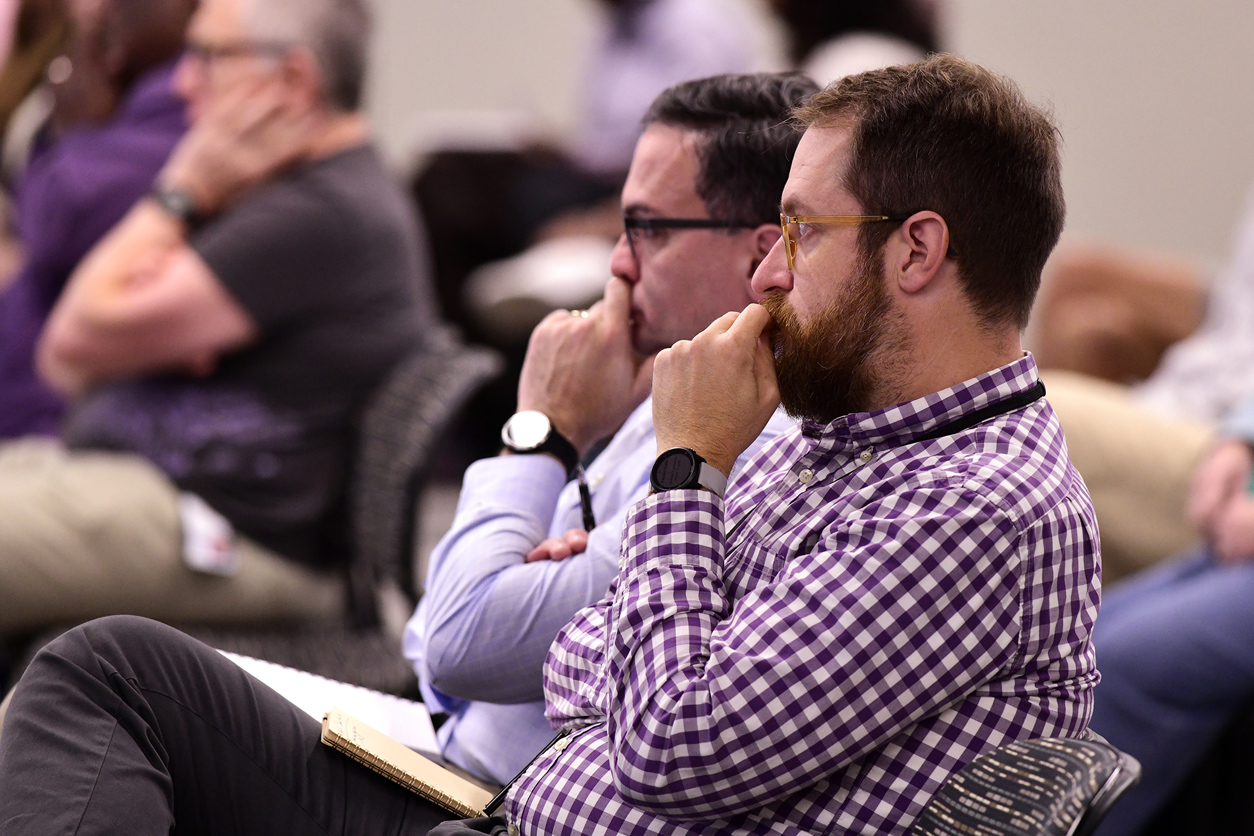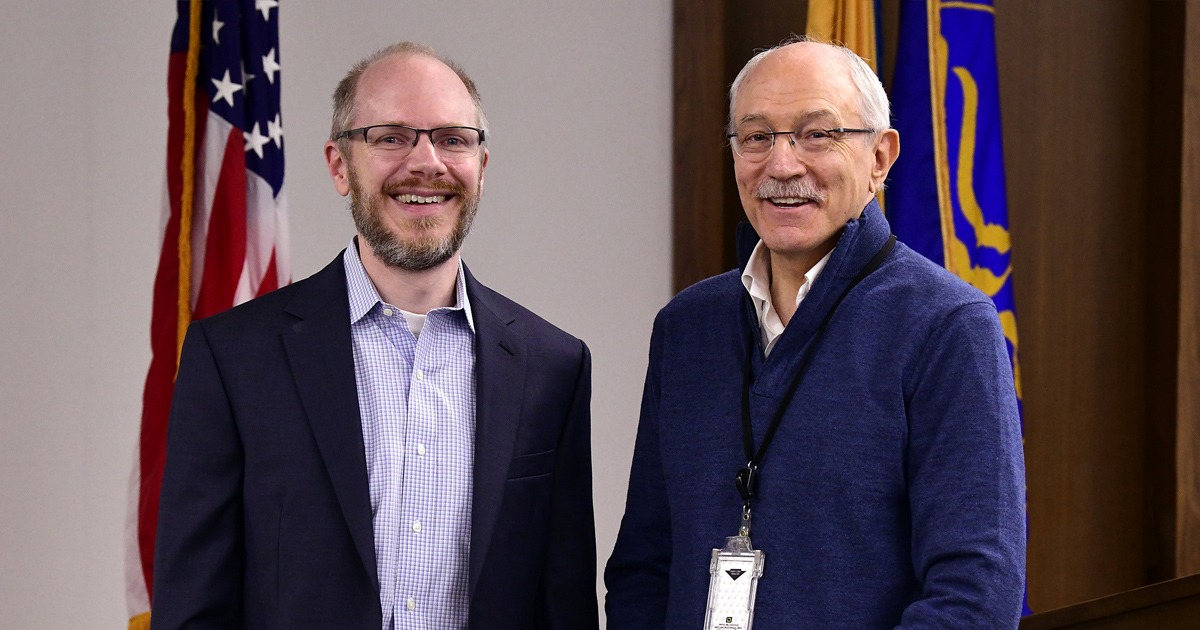The All of Us Research Program, an ambitious effort by the National Institutes of Health (NIH), is set to advance understanding of how environmental exposures affect human health. In a Sept. 3 lecture at NIEHS, Josh Denny, M.D., explained how the effort to gather data from more than 1 million diverse participants will generate a valuable database that considers individual differences in genes, environment, and lifestyle.
“My goal is that you will see this as a platform for communities and environmental researchers to look at the effect of the environment, gene by environment interactions, social determinants of health, and so much more,” said Denny, chief executive officer of All of Us.
The program has prioritized enrolling communities that have historically been underrepresented in biomedical research, including ethnic and racial minorities and rural residents.
“A theme of All of Us is to lay the foundation of discovery and find ways to accelerate and expand strategies to combat multiple diseases and disorders,” said Denny. “We want to reflect the rich diversity of the United States.”
NIEHS Director Rick Woychik, Ph.D., invited Denny to present as part of a series of visits and meetings with NIH leaders to boost collaborative studies of the environment across NIH Institutes, Centers, and Programs.
Precision medicine approach
Precision medicine is an innovative medical approach that uses an individual’s specific circumstances to guide health care decisions. This counteracts the typical, one-size-fits-all approach to medical care. Denny said that the All of Us program is open to the entire U.S. population, as the goal is to get as large a sample size of people as possible.
“We want to over-enroll diverse samples of the population and capture differences in those cohorts, so we can accelerate more precision medical treatments,” said Denny.

A growing database
All of Us emphasizes collaboration and partnerships with individuals and organizations across the U.S., including historically Black colleges and universities. Electronic health records, biosamples, participant health surveys, physical measurements, and wearable technologies help drive the partnerships with individuals who would normally not be able to participate in scientific research.
“We now have over 832,000 participants in All of Us with 87% of those belonging to underrepresented groups in biomedical research,” said Denny. “Around 50% of participants identify as non-Hispanic White, with the other half identifying to other racial and ethnic groups. Education level, age, rural locations, and questions about disabilities also play huge factors in our data collected.”

Engaging participants as partners
Collecting such a huge amount of data is one of the most valuable aspects of All of Us. But gathering data from individuals can be challenging, so the program engages participants as full partners in the research. This involves robust outreach, such as listening sessions and bus tours, to different areas of the country.
For example, Denny and his team engaged community members in 17 different locations before beginning to enroll participants.
“We learned people want to give back and make a difference for their communities by participating and contributing data,” said Denny.
Next, All of Us is looking to accelerate a pediatrics program that has already enrolled more than 100 children ages 4 and under.
“As my pediatrician friends like to remind me, 20% of people in America are children, but 100% of our future are children,” said Denny.
(Sam Tyler is a technical writer-editor in the NIEHS Office of Communications and Public Liaison.)
Source link
factor.niehs.nih.gov

